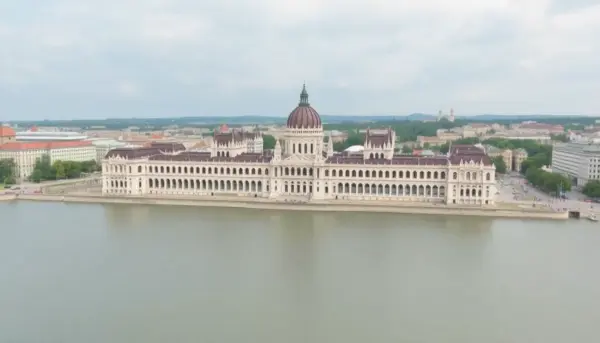Are you dreaming of a trip to Budapest? You’re in for a treat! This stunning city, rich in history and culture, offers a myriad of experiences that will leave you captivated. Our comprehensive guide will equip you with all the essential information to make the most of your adventure in this enchanting capital. Let’s dive in and explore what Budapest has to offer!
Exploring the wonders of Budapest
Budapest, often referred to as the Paris of the East, is known for its breathtaking architecture, vibrant nightlife, and thermal baths. As you stroll through its streets, you’ll find a unique blend of old-world charm and modern flair. The city is divided by the Danube River, with Buda on one side and Pest on the other, each offering distinct experiences.
Here are some must-see attractions you can't miss:
- Buda Castle: A historic castle and palace complex that provides stunning views of the Danube and the city.
- Fisherman's Bastion: This fairy-tale-like terrace is perfect for panoramic views and photos of the Parliament building.
- Széchenyi Thermal Bath: One of the largest medicinal bath complexes in Europe, ideal for relaxation after a day of sightseeing.
- Chain Bridge: A symbol of Budapest, this suspension bridge connects Buda and Pest and is especially beautiful when illuminated at night.
- St. Stephen's Basilica: A magnificent church that houses the mummified right hand of St. Stephen, the first king of Hungary.
What to see in Budapest in five days
With five days at your disposal, you can truly immerse yourself in Budapest’s wonders. Here’s a suggested itinerary to help you make the most of your time:
- Day 1: Explore Buda Castle and its surroundings, then take a leisurely walk to Fisherman's Bastion for sunset views.
- Day 2: Spend your morning at the Széchenyi Thermal Bath, followed by a visit to Heroes' Square and the City Park.
- Day 3: Discover the Jewish Quarter, including the Dohany Street Synagogue and ruin bars.
- Day 4: Take a day trip to the nearby town of Szentendre, known for its art galleries and quaint streets.
- Day 5: Visit the Great Market Hall for a taste of local cuisine, then explore the Parliament building and take a cruise on the Danube.
Living the journey in Budapest
Living in Budapest, even temporarily, can be a transformative experience. The cost of living is relatively low compared to other European capitals, making it an attractive destination for long-term stays. You can find cozy apartments in vibrant neighborhoods like the Jewish Quarter or near the Danube River, allowing you to experience the local lifestyle.
Engage with the locals, savor traditional dishes such as goulash and chimney cake, and participate in local festivals to truly embrace the culture. Budapest is also known for its thriving arts scene, with numerous galleries, theaters, and concerts happening throughout the year.
Tourism in Budapest: An Overview
Tourism in Budapest has seen a significant rise in recent years, making it one of the most popular destinations in Europe. The city's blend of history, architecture, and vibrant culture attracts millions of visitors annually. The tourism sector provides ample opportunities for local businesses, from boutique hotels to guided tours.
To enhance your experience, consider joining one of the many free tours available. These tours, often led by enthusiastic locals, offer insights into the city’s history and hidden gems. You can find options like walking tours, food tours, and even themed tours focusing on specific aspects of Budapest's culture.
Tips for traveling to Budapest
Traveling to Budapest can be a breeze if you keep a few key tips in mind:
- Currency: The currency used in Hungary is the Hungarian Forint (HUF). Be sure to exchange any necessary currency before your trip or upon arrival for better rates.
- Public Transport: Budapest boasts an efficient public transport system, including buses, trams, and a metro line. Consider purchasing a travel card for unlimited rides within a specified timeframe.
- Language: While Hungarian is the official language, many locals speak English, especially in tourist areas. A few basic phrases in Hungarian can go a long way in enhancing your interactions.
- Safety: Budapest is generally safe for tourists, but like any major city, it's wise to remain vigilant and take standard precautions.
Getting around Budapest
Understanding how to navigate Budapest is crucial for maximizing your experience. Here are some transport options to consider:
- Metro: The metro system is quick and efficient, with four lines connecting major attractions.
- Buses and Trams: Extensive bus and tram networks make it easy to reach areas not serviced by the metro.
- Bicycles: The city is becoming increasingly bike-friendly, with designated bike lanes and rental services available.
- Walking: Many of Budapest's highlights are within walking distance, making it a great city to explore on foot.
Where to stay in Budapest
Finding the right accommodation can significantly enhance your Budapest experience. Here are some recommendations for various budgets:
- Luxury: The Four Seasons Hotel Gresham Palace offers elegant rooms and stunning views of the Danube.
- Mid-range: Hotel Rumor is known for its modern decor and central location.
- Budget: HI Budapest City Hostel provides affordable options for backpackers and budget travelers.
Where to eat in Budapest
Food lovers will find a plethora of dining options in Budapest. Here are some places to satisfy your culinary cravings:
- Central Market Hall: A vibrant place to sample local delicacies and buy fresh produce.
- New York Café: Known as the most beautiful café in the world, it offers a unique dining experience.
- Paprika: A great spot to try traditional Hungarian dishes in a cozy atmosphere.
For those seeking more information and insights about Budapest, check out this informative video:
Curiosities about Budapest
Dive deeper into the unique aspects of Budapest with these fascinating facts:
- The city is home to the world’s second-largest Parliament building, an architectural masterpiece.
- Budapest has more thermal baths than any other capital in the world, thanks to its natural hot springs.
- The city’s name is derived from its two parts: Buda and Pest, which were unified in 1873.
We hope this guide helps you embark on an unforgettable journey to Budapest, filled with incredible sights, delicious food, and rich culture. Enjoy your travels!




